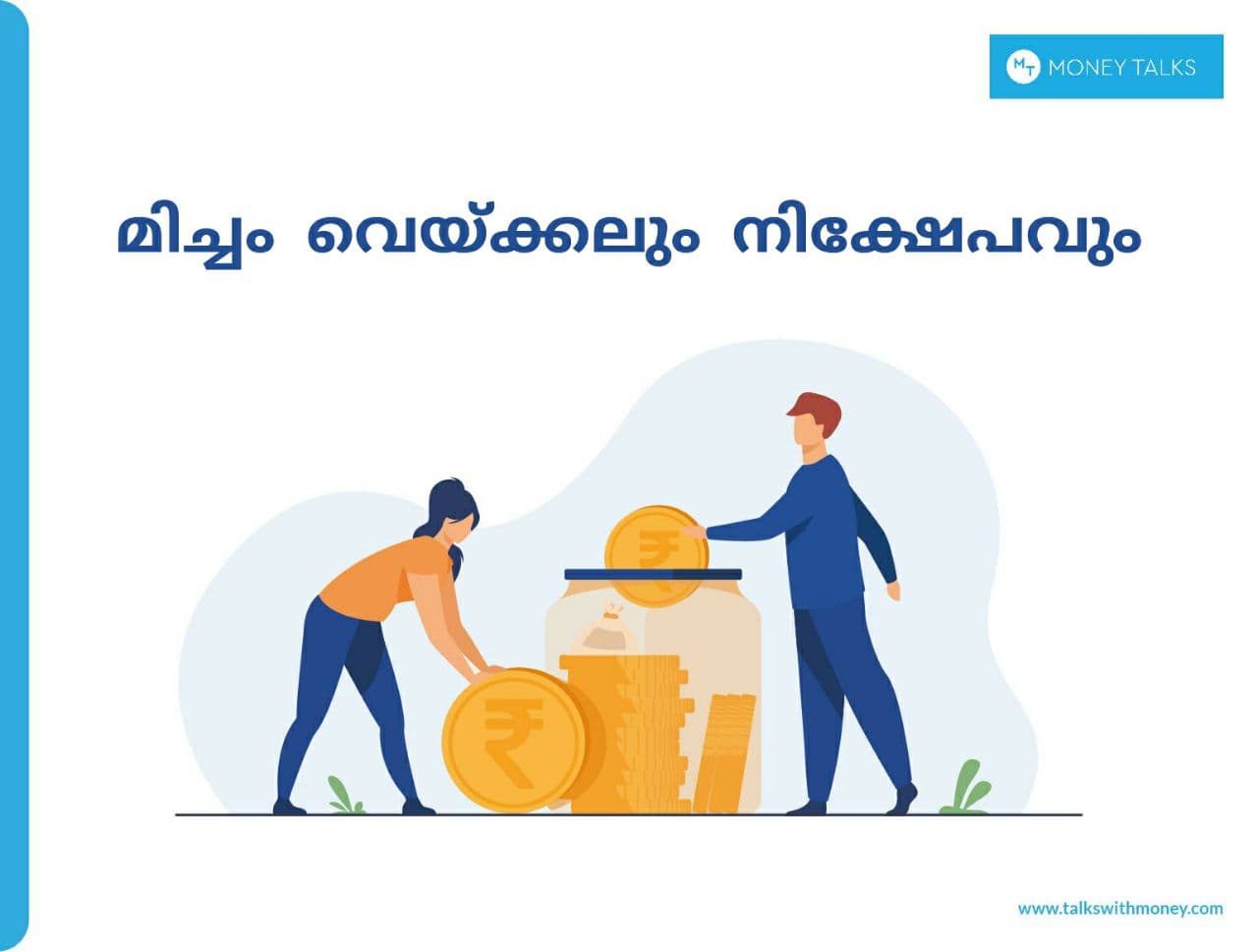What is Compound Interest? How does it work? And how can it work your Money in your favor; which is wealth creation? Listen to this episode on Money Talks with Nikhil and understand what compound interest is.
WHAT IS ACTIVE AND PASSIVE INCOME
Most of us will have an active income while our concept of a passive income seems distant.
It is a dream to reach a stage in life where you earn money by doing nothing. However, to reach this stage, one needs to have an active income. Money received from doing a physical work in the form of salary or profit from a business is active income.
Money earned without working is called passive income.
Passive income is earned in the form of rent, dividend, interest, and royalty.
If passive income is higher than monthly expenses, he or she is financially free.
Passive Income literally works and generate income when one sleeps. However, to generate passive income, one should have an income. At the same time, you should identify an option to invest so that passive income will be generated in the later phases of your life. This helps when nearing retirement age as active as well as passive income makes the retirement life quite safer.
However, one should always make a thorough study before identifying options that can generate passive income.
The following form passive income.
• Rentals from a company for an advertisement which has been pasted on your house’s exterior wall.
• Royalty from the sale of a book which you wrote and published
• Income from a YouTube channel which you had started and stayed committed to.
• Profit from a company which you funded
Doing a job creates active income.
If you invest this active income wisely, the returns from it will form a passive income, the rewards of which you will enjoy in your retirement years.
How to Achieve your Dreams with SIP ?
Systematic Investment Planning, otherwise known as SIP, is a more disciplined and automated way of Investing.
Listen to this episode and learn how to start a SIP and how to create wealth using this type of Investment.
മിച്ചം വെയ്ക്കലും നിക്ഷേപവും
മിച്ചം വെയ്ക്കലും നിക്ഷേപവും
ഒരു നിക്ഷേപകന്റെ കുപ്പായം എടുത്ത് അണിയുന്നതിന് മുൻപ് അത്യാവശ്യമായി അറിഞ്ഞിരിയ്ക്കേണ്ട ഒന്നാണ് പണം മിച്ചം വെയ്ക്കുന്നതും നിക്ഷേപിയ്ക്കുന്നതും തമ്മിലുള്ള വ്യത്യാസം. പരസ്പരം മാറ്റത്തക്ക രീതിയിൽ ഉപയോഗിയ്ക്കുമെങ്കിലും രണ്ടും തമ്മിൽ വ്യത്യാസമുണ്ട്. ഭാവിയിൽ എന്തെങ്കിലും വാങ്ങാനോ അടിയന്തിര ഘട്ടത്തിൽ ഉപയോഗിയ്ക്കാനോ നിങ്ങൾ പണം നീക്കി വെയ്ക്കുന്നുണ്ടെങ്കിൽ അത് പണം മിച്ചം വെയ്ക്കലാണ്. മറിച്ച് സ്ഥിര നിക്ഷേപമായോ കൂടുതൽ ആദായവും വളർച്ചയും മുന്നിൽ കണ്ട് സ്റ്റോക്ക്, ഓഹരി, വസ്തുവകകൾ എന്നിവ വാങ്ങാനോ പണം ഉപയോഗിയ്ക്കുമ്പോൾ അത് നിക്ഷേപം ആകും. ധന നിർമ്മിതിയ്ക്കുള്ള ആദ്യ പടി പണം മിച്ചം വെയ്ക്കലാണ്. എന്നാൽ ആദായം വർദ്ധിപ്പിയ്ക്കാൻ ചെയ്യേണ്ടത് നിക്ഷേപമാണ്.
പണം മിച്ചം വെക്കുന്നതിന് മാർഗ്ഗങ്ങൾ ഏറെയുണ്ട്. സ്ഥിരമായി റസ്റ്റോറന്റിൽ ഭക്ഷണം കഴിയ്ക്കാൻ പോകുന്ന ഒരാളാണ് നിങ്ങൾ എന്ന് വിചാരിയ്ക്കൂ. ഈ മാസം ആ പതിവ് ഉപേക്ഷിച്ച് അടുത്ത മാസത്തെ ഒരു യാത്രയ്ക്കായോ പുതിയ ഒരു മൊബൈൽ ഫോൺ വാങ്ങാൻ വേണ്ടിയോ ആ പണം നിങ്ങൾ നീക്കി വെയ്ക്കുമ്പോൾ അത് മിച്ചം വെയ്ക്കലാണ്. എന്നാൽ ഒരു നിശ്ചിത തുക നിങ്ങൾ ഫിക്സഡ് ഡെപ്പോസിറ്റ് ആയി നിക്ഷേപിയ്ക്കുകയോ അല്ലെങ്കിൽ ദീര്ഘകാലാടിസ്ഥാനത്തിൽ ലാഭം മുന്നിൽ കണ്ട് ഓഹരികളോ സ്റ്റോക്കുകളോ വാങ്ങാൻ ഉപയോഗിയ്ക്കുകയോ ചെയ്താൽ അത് നിക്ഷേപമാണ്. പണം മിച്ചം വെച്ചാലേ നിങ്ങൾക്ക് നിക്ഷേപിയ്ക്കാനാവൂ.
മിച്ചം വെയ്ക്കലും നിക്ഷേപവും തമ്മിലുള്ള വ്യത്യാസം
മിച്ചം വെയ്ക്കൽ
• റിസ്ക് സാധ്യത തീരെ ഇല്ല
• മിച്ചം വെയ്ക്കുന്ന പണത്തിൽ നിന്നും ആദായം ലഭിയ്ക്കില്ല, പത്ത് വർഷത്തിന് ശേഷവും മിച്ചം വെച്ച തുക മാറ്റമില്ലാതെ തുടരും.
• ഹ്രസ്വകാലാടിസ്ഥാനത്തിലുള്ള ആവശ്യങ്ങൾക്കാണ് പണം മിച്ചം വെയ്ക്കുന്നത്.
നിക്ഷേപം
• വിപണിയുടെ ഉയർച്ച താഴ്ചകളെ ആശ്രയിയ്ക്കുന്നതിനാൽ കൂടുതൽ റിസ്ക് സാധ്യത.
• ഓഹരികൾ മികച്ച ലാഭ വിഹിതവും ഫിക്സഡ് ഡെപ്പോസിറ്റ് 6 മുതൽ 7 ശതമാനം പലിശയും നൽകുന്നതിനാൽ ഉയർന്ന ലാഭ സാധ്യത
• നിക്ഷേപങ്ങൾ നടക്കുന്നത് ദീർഘ കാലാടിസ്ഥാനത്തിലാണ്
ഇതിൽ ഏതിനാണ് കൂടുതൽ പ്രാമുഖ്യം നൽകേണ്ടത് എന്നാണ് ചോദ്യമെങ്കിൽ രണ്ടിനും എന്നാണ് ഉത്തരം. എങ്കിലും നിക്ഷേപത്തിന് ഏറെ പ്രാധാന്യം ഉണ്ട്. ഇത് ഒരു ഷർട്ടിൻറെ ഉദാഹരണത്തിലൂടെ സാധൂകരിയ്ക്കാം. അഞ്ച് വർഷങ്ങൾക്ക് മുൻപ് നിങ്ങൾ വാങ്ങിയ ഷർട്ടിൻറെ വില 1500 രൂപ ആണെങ്കിൽ നാണയപ്പെരുപ്പം കാരണം ഇന്ന് അതിന്റെ വില 3000 ആയി ഉയർന്നിട്ടുണ്ടാകും. അഞ്ച് വർഷം മുമ്പ് നിങ്ങൾ 1500 രൂപ മിച്ചം വെച്ചാലും ഇന്ന് ആ തുകയ്ക്ക് ഷർട്ട് വാങ്ങാനാവില്ല. എന്നാൽ ആ തുക അന്ന് ഫിക്സഡ് ഡെപ്പോസിറ്റിൽ നിക്ഷേപിച്ചിട്ടുണ്ടെങ്കിൽ അത് വളർന്ന് ഷർട്ട് വാങ്ങാൻ തക്ക തുകയായി വളർന്നേനെ.
ചുരുക്കത്തിൽ നിക്ഷേപിയ്ക്കണോ മിച്ചം വെക്കണോ എന്നത് എന്തിനായി നിങ്ങൾ ആ തുക ഉപയോഗിയ്ക്കുന്നു എന്നനുസരിച്ചിരിയ്ക്കും. അതിനാൽ പണം ബുദ്ധിപൂർവ്വം ഉപയോഗിയ്ക്കാൻ ശീലിയ്ക്കൂ.
6 Things to Do to Plan your Retirement Early
Planning your retirement ahead of time is always advisable. Here are six steps to take financially so that you meet your retirement in peace.
SAVING AND INVESTING
Before you embark your journey to be an investor, one should know the basic difference between saving and investing.
Though used interchangeably, both are different.
When you set aside money for future purchases or emergencies, you save it whereas investing refers to utilizing your saved money to deposit in FD’s, buy stocks and shares, properties with a much higher growth or return in mind.
Saving is the first step towards wealth creation whereas the purpose of investing is to generate income.
There are many ways in which you can save money.
Assume you are someone who frequents restaurants. You cut short this habit and save money so that you can plan a holiday or buy a new mobile.
In investing, you invest a specific amount in FD or use it to purchase stocks or shares with a long-term goal in mind.
Only if you have savings, you will be able to invest.
Difference between Savings and Investing
Savings
- No risk involved in savings
- No returns in savings as the amount saved remains same even after 10 years
- Savings is done for short term goals
Investments
- High risk involved in investing as equity investments depend on market growth
- High returns as FDs provide 6 to 7 percent interest and shares provide higher dividend
- Investments are done with long-term goals in mind.
To the question, which is more significant, both is the answer.
However, investment holds a higher significance and can be validated through an example of buying a shirt. The shirt was priced 1500rs 5 years ago but has increased to 3000rs due to inflation. If you had saved 1500rs 5 years ago, the amount would have remained the same and proven insufficient to buy the shirt.
In case the amount was invested in FD, it would have grown into an amount sufficient enough to buy the shirt.
If you have kept aside a specific amount for short term purposes like paying your kid’s tuition fee next month, saving holds significance as hardly any time left to identify and invest the amount. But if the amount is for your kid’s higher studies next year, you can invest it in FD which provides you good returns.
Whether one should save or invest also depends upon the timespan one has at their disposal.
In short, whether to save or invest depends upon what you want to do with the money. Go through these and learn to understand your purpose with money.
7 Steps to Take to Invest in Your Retirement
Investing to retire some day is an essential aspect of your financial planning. An early retirement investing is always recommended. To learn how and why we must take steps ahead of our time so that we retire well and prosperous, listen here.
HOW TO BENEFIT FROM AN INTERNATIONAL COMPANY’S GROWTH
Currently, there has been lot of buzz around investing in global markets. Moreover, there is no dearth of brokers who can help an Indian invest in multinational companies like Facebook, Microsoft, Google, and Twitter even while residing in India.
Opening an account with any of these brokers introduces you to the innumerable options available in global market.
However, most of the investors may not find it easy to do an analysis on international companies. But worry not for you have mutual funds !
Why Global Market
Exposure: Global market provides you with the chance of investing in multinational companies like Apple, Samsung, and Microsoft
Dollars: Investing in dollars is highly advantageous considering the appreciation in dollars compared to the Indian currency. While investing in a company in United states, you get benefitted from the growth of the company as well as the currency.
Huge Corpus: If you have a huge corpus amount in your hands, why limit your risks to Indian market. Diversifying geographically opens you to the vast options available there.
Tips for Investing
- Invest a 10 percent of your mutual funds in global market. For example, if you are investing Rs. 50,000 a month in mutual funds, invest 10 percent of it, that is, 5000 in global market.
- Avoid global market if the invested amount is smaller
- There are funds available which have 50-75% participation in Indian market and 25% in global market.
- Understand your investment objective, risk profile, terms of investment and the desired goal which helps you choose the funds.
Indians who make a huge presence in social media contribute a lot to the growing revenue of conglomerates like Facebook, Google and Twitter.
Why not then invest in these companies and increase your wealth ?
6 Ways to Diversify your Investments
The first step to investing your money is to ask the question, ‘why?’.
And once your financial goal is set & risk appetite defined, then these are some of the avenues in which you can diversify your investments.









